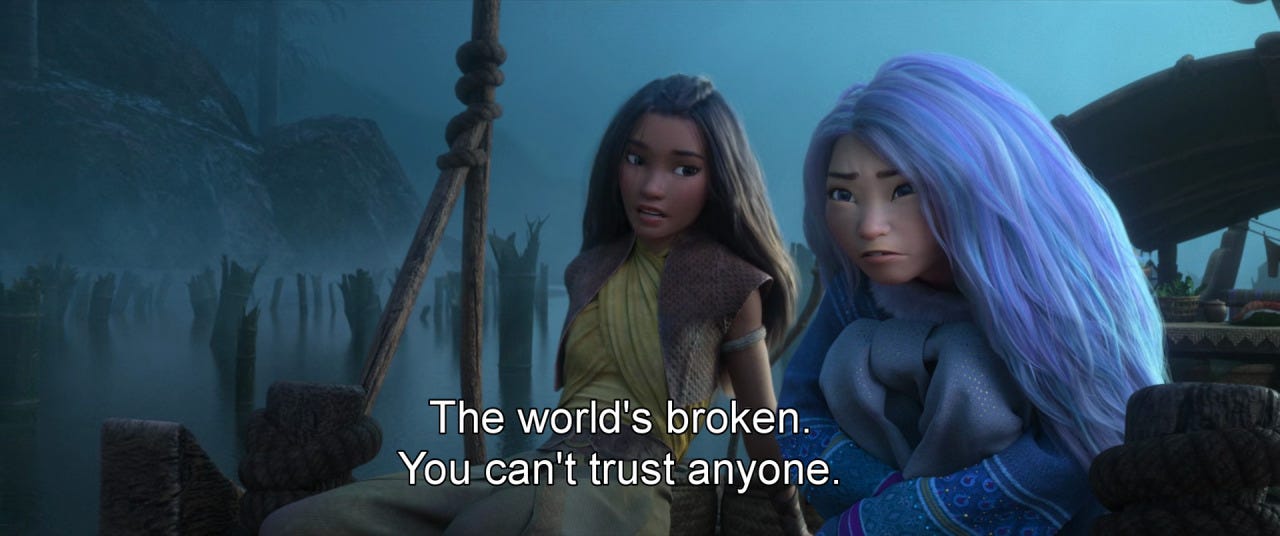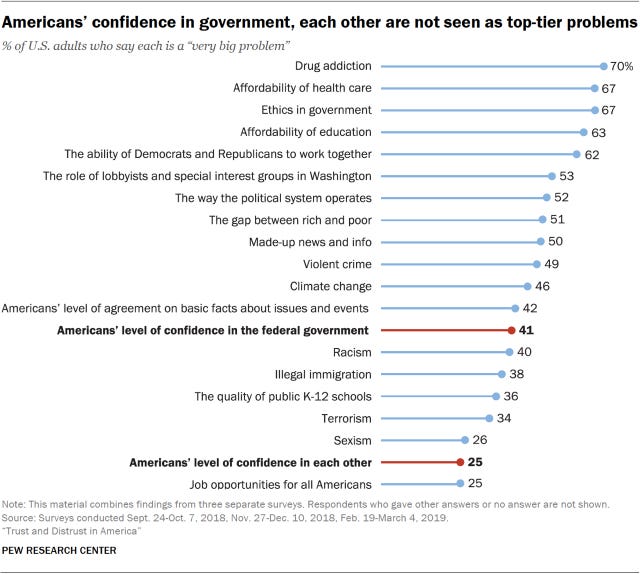Yes, this is a movie aimed at kids, with a cute animal sidekick, merchandising-ready props, and another princess character to add to the pantheon (side note: isn’t it about time Vanellope von Shweetz is rightfully recognized as a member of that august coterie?) I watched it in the presence of three other adults and a total of fourteen children at our Saturday night movie club last week. One criticism: there’s no Big Song for the kids to sing—nothing like “Let It Go” from Frozen or “How Far I’ll Go” from Moana. What’s a little girl to sing at full volume when she wakes up way too early the next morning? In fact, until the end credits, this movie doesn’t have any songs at all—only soundtrack music. Oh well. At least Disney is still using their new animating methodology, which looks so much better than the semi-flat style of The Princess and the Frog.
Kid movies quite often have a message, though, and that means it is necessary to think about them. It seems that Disney has finally decided to stop telling kids to believe in themselves and follow their heart—a problematic admonition if there ever was one. In Raya and the Last Dragon, the message is: trust. Trust each other. We need more trust. And other riffs on that theme. It’s quite heavy-handed, in fact—you can’t get away from it or overlook it. There really isn’t anything else of substance in the film. Okay, Disney, I get it; you want to start a conversation about trust. That’s fine. In fact, this is exactly the right cultural moment for this conversation.
The amount of distrust present in American culture is ratcheting up every day—it is already way past the dangerous level, and has been for some time. Can you think of any ideologically divergent groups who don’t hate each other’s guts? The different races and ethnicities certainly won’t trust each other—for good reason, in a lot of cases. Surely, at least, the different sexes can still trust each other, right? Nope! Trust is gone there, too!
What is trust, anyway? I think that in the American context, our lack of trust is the same as our belief that the other side wants to take advantage of us—or, to put it negatively, our belief that they don’t have our mutual best interests in mind. We can’t expect the other guys to have the same project goals as us; even more, we expect the other guys to try to sabotage our efforts. This is the same dynamic that plays out in Raya. The different factions of Kumandra don’t expect that the people of Heart will use the dragon gem for the collective good. Benja tries to convince them otherwise, but the barrier to trust is formidable—Raya’s father in effect says, “if you guys show me all your cards I promise I won’t screw you over, but I can’t prove it until after you show me all your cards.” The two political parties in America are locked in the same power struggle.
Despite the twists and turns in Raya’s plotline, things work out just fine in the end once people trust each other. But how would that work in real life? The red tribe / blue tribe dynamic in American politics is a reflection of an actual disconnect between two opposing ideas of what America means or ought to be. I just don’t know how American politics could be anything other than a zero-sum game, unless a third player entered the arena. Maybe this is what Raya’s father was trying to do—to position a united Kumandra as the alternative to the five warring tribes. But he failed because he didn’t give any concessions in return.
I don’t follow politics very closely; I usually get a feel for the bigger trends, but the subtleties evade me. But I can’t understand why the government’s lack of trustworthiness isn’t a bigger problem for most people. I would think that enough people would be so sick of the duplicitous rhetoric from both the red and the blue tribes that something—anything—would be preferable. Unfortunately, that does not seem to be the prevalent attitude:
Maybe the message of Raya and the Last Dragon, that trust is actually important and worth fighting for, will not be heeded; maybe Americans are too myopic and self-serving to think that the other side might have some useful ideas. Maybe the only way forward in America is for one side to give up everything and take a great risk, as Raya did when she allowed herself to be overwhelmed by the Druun. Vulnerability is the ground upon which true trust can be built—it is how strong interpersonal relationships have always worked. For Christians, the ultimate vulnerability would be to reject both the red and the blue tribal narratives, and form their own, explicitly Christian, political party. Is it too idealistic for me to think that this strategy might be worth pursuing?




